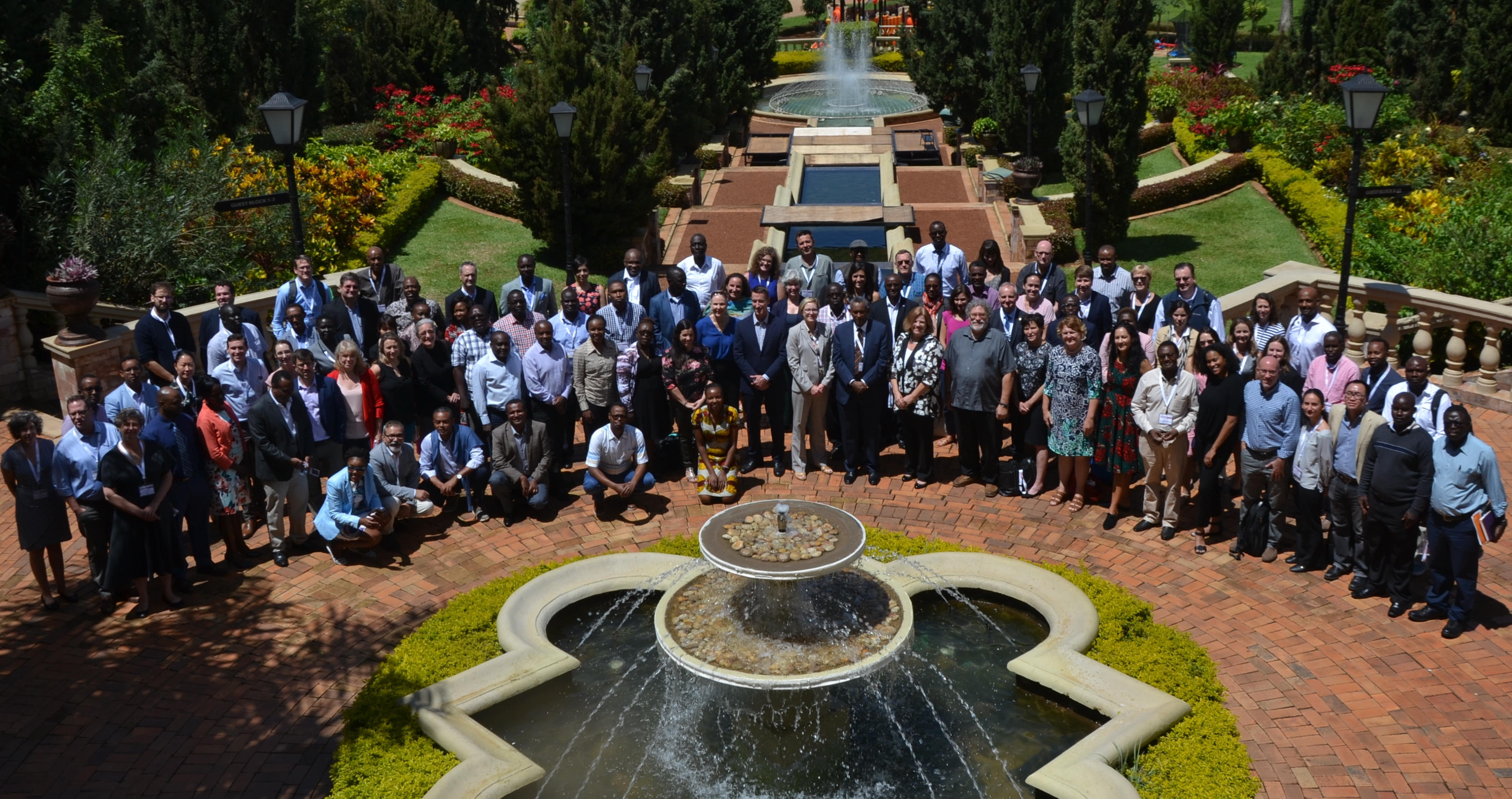SERVIR-ESA's Project Manager Dr. Robinson Mugo attended the Horn of Africa Resilience Workshop in Uganda. The workshop focused on Application of Evidence for Decision Making. It followed the Horn of Africa Resilience Data for Programming Workshop held in Kenya in November 2016 and, to a lesser extent, a global Resilience Evidence Forum held in Washington, DC in October 2017.
In addition to reviewing current approaches to analyzing resilience at various scales and in distinct contexts, a common objective of these events was to encourage key stakeholders to apply emerging evidence to decisions on resilience policy and programming. This workshop was similarly purposed. At the heart of USAID’s resilience programming is a goal to reduce the humanitarian caseload in the Horn of Africa The main objectives of the Annual Workshop were to: appreciate the current thinking around finance at the community, county/subnational, and national/regional levels; share best practices and learning from across the region on financing, review the resilience framework that was developed in 2016 to serve as common reference for resilience programming in the region, and to identify critical strategies for moving the effort forward.

Drawing on a growing body of evidence from impact evaluations of resilience programs, recurrent monitoring surveys, and focused case studies, the event convened key field-based stakeholders in the Horn of Africa (HoA) region. The goals of the workshop held between May 13 and 16, 2019 were to ensure participants are well-versed in recent evidence generated on resilience in their respective countries; to begin to build a strategic narrative around that evidence; to identify what questions in particular answer for them, and which remain unanswered; and to identify what decisions can be informed with these data.
The structure of the workshop included panel discussions, plenary discussions, and small working group sessions. The combination of sessions and participants provided a platform for rich discussions from first hand experiences, gaps, and lessons learned in implementation of regional resilience programs.
At the end of the annual meeting, partners identified key takeaways and areas of improvement for increased collaboration and learning across the region. These include: improved coordination mechanisms among USAID missions, national and sub-national governments, and implementing partners; development of a disaster risk financing framework; use of real data and evidence to inform resilience programming and adaptation; complementarity in implementation of resilience programs which will enhance collaboration and coordination; a scaled up the role for the private sector; and incorporation of joint work planning for strategic collaboration.
Providing a platform for learning, the workshop identified successful strategies, enabling conditions, and policies for strengthening resilience, as well as approaches that have been less successful. The workshop was principally designed to initiate a dialogue among donors, private voluntary organizations, researchers and academics, and the private sector on evidence-based strategies for enhancing resilience in the Horn of Africa.













